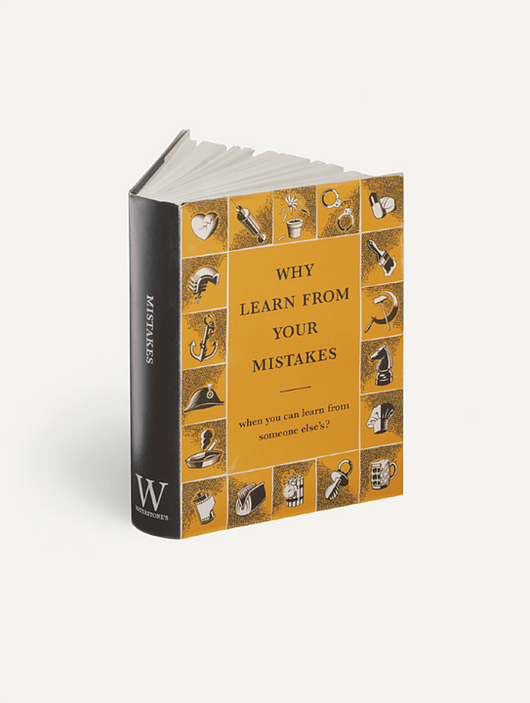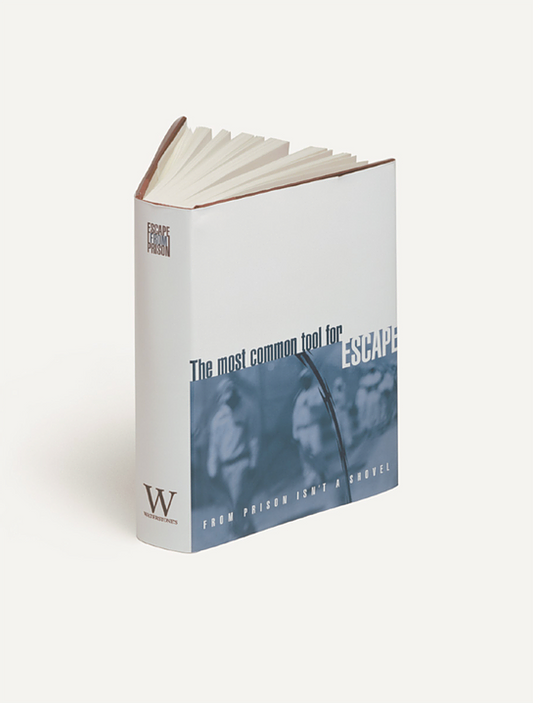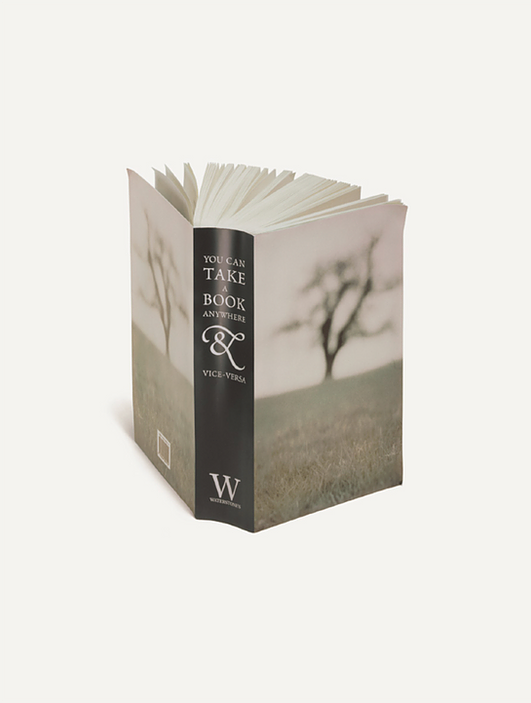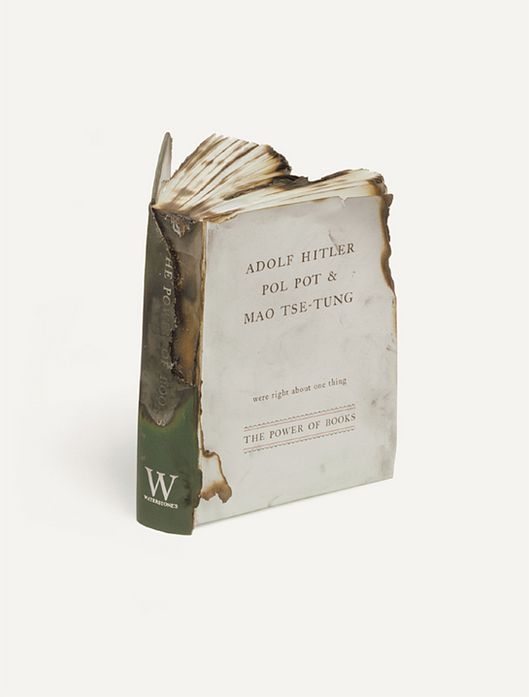Great Copy, Part 3.
Books.
I’ve read quite a few: long, short, exciting, dull, fiction, non-fiction, for pleasure, for obligation, for my English A-Level, War and Peace, Zen and the Art of Motorcycle Maintenance, Katie Price: My Story…
But through all those letters, words, paragraphs and pages, I don’t think I’d ever really considered why reading books was such a worthwhile pursuit.
Fortunately, in the late 1990s and early 2000s, a copywriter called Nigel Roberts explained it to me again and again through the unexpected medium of advertising:.
This one is my favourite:

‘Why learn from your mistakes when you can learn from someone else’s?’
In a single sentence, the most compelling reason to read books (and watch TED talks) that I’ve ever come across.
On the technical side it does something I’m very fond of: it takes a cliché and turns it on its head. ‘Learn from your mistakes’ in one form or another has been attributed to many people, from Henry Ford to Winston Churchill, but it’s a bit of an arse. It means you have to make those mistakes then suffer the consequences.
What if you could learn without suffering? That would surely be far better. Well, buy a book and the discomfort of others becomes a five quid paperback that gives you a painless head start in any subject.
Who can argue with that? It’s actually a better piece of advice than than the inexplicably tenacious ‘learn from your mistakes’, and if you can write a line that makes Churchill look like a bit of a thickie, you’ve done your job very well indeed.
The truth and the construction are faultless, but I also like the ‘surely this must have occurred to you before?’ tone of voice of a friendly mate down the pub. Such a big thought needs a smaller delivery, and that’s what Nigel has given us. Not off-puttingly pompous or condescending. Just a little nod in the direction of a better life.
The entire campaign deserves a pat on the back (as does the quite brilliant art direction from Paul Belford). Find it here, along with lots of other great writing by Mr. Roberts (and my podcast interview with him can be found here).
But as I’m on the subject, a few quickies:

Escape from prison with a book? I might apply the same benefit to a boring train journey or trip to the in-laws (not my in-laws, obviously. They’re all very entertaining). I also like the use of the unwieldy, almost onomatopoeic word ‘shovel’. It makes the digging process seem more of a drudge than the ‘spade’ a lesser writer might have employed.

The physical and literal versatility of books, all summed up in a sentence. I think Nigel made good use of ‘and vice versa’ as a line construction in other campaigns, but this was the first. If you can do a perfect vice versa you have written a good line. If you can do it several times, you’re a very good writer. I’ve seen plenty try their hand at it and simply add confusion.

Let’s end on a high.
Imagine starting an advertising headline with ‘Adolf Hitler, Pol Pot and Mao Tse-Tung were right about one thing’. That is a flying trapeze quintuple somersault over a pool of crocodiles that you’d better land perfectly. And Nigel did. With just four words he turned something that’s probably tattooed on Nigel Farage’s bum into another great reason to buy a book in Waterstones.
Why learn from your mistakes when you can learn from Nigel Roberts’ copy?
Loved this post Ben, never seen this campaign before. The writing is sublime. I’m sure this is totally subjective – but something about the art directional execution feels a little … dreary to me? The idea of having everything on a book is lovely, but the covers themselves feel quite flat, somehow (except the last one, the burnt book is awesome). Am I crazy?
Look at the others in the series. They’re supposed to suggest a range of benefits and emotional responses, so the images reflect that appropriately. That’s my take, anyway.